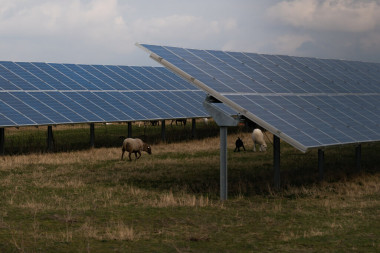Germany’s Solar Panel Industry, Once a Leader, Is Getting Squeezed
Domestic manufacturers are caught between China’s low prices and U.S. protectionist policies, even as demand increases.
Before China came to dominate the solar panel industry, Germany led the way. It was the world’s largest producer of solar panels, with several start-ups clustered in the former East Germany, until about a decade ago when China ramped up production and undercut just about everyone on price.
Now as Germany and the rest of Europe try to reach ambitious goals to cut greenhouse gas emissions, the demand for solar panels has only increased.
Some of the last remaining manufacturers in Germany’s solar industry are not ready to give up.
They are demanding that the government in Berlin offer incentives to protect producers that have survived by catering to niche markets and expanding beyond making panels. They argue that Europe’s high standards for the origin of materials and shorter supply chains make production in Germany more environmentally friendly and reliable.
…
But for European solar manufacturers, the problem has gotten worse in the past year. Not only have the Chinese increased their production of solar panels, but the United States tightened its tariffs to include Chinese panels shipped to Southeast Asian countries for final assembly. That has caused a flood of Chinese panels to reach Europe at below-market prices, government officials and company executives say, crushing any chance at fair competition.
Last year, more than 97 percent of the solar panels installed on roofs and in fields across Europe were made abroad, the vast majority in China, where cheap energy and government support keep prices low.
